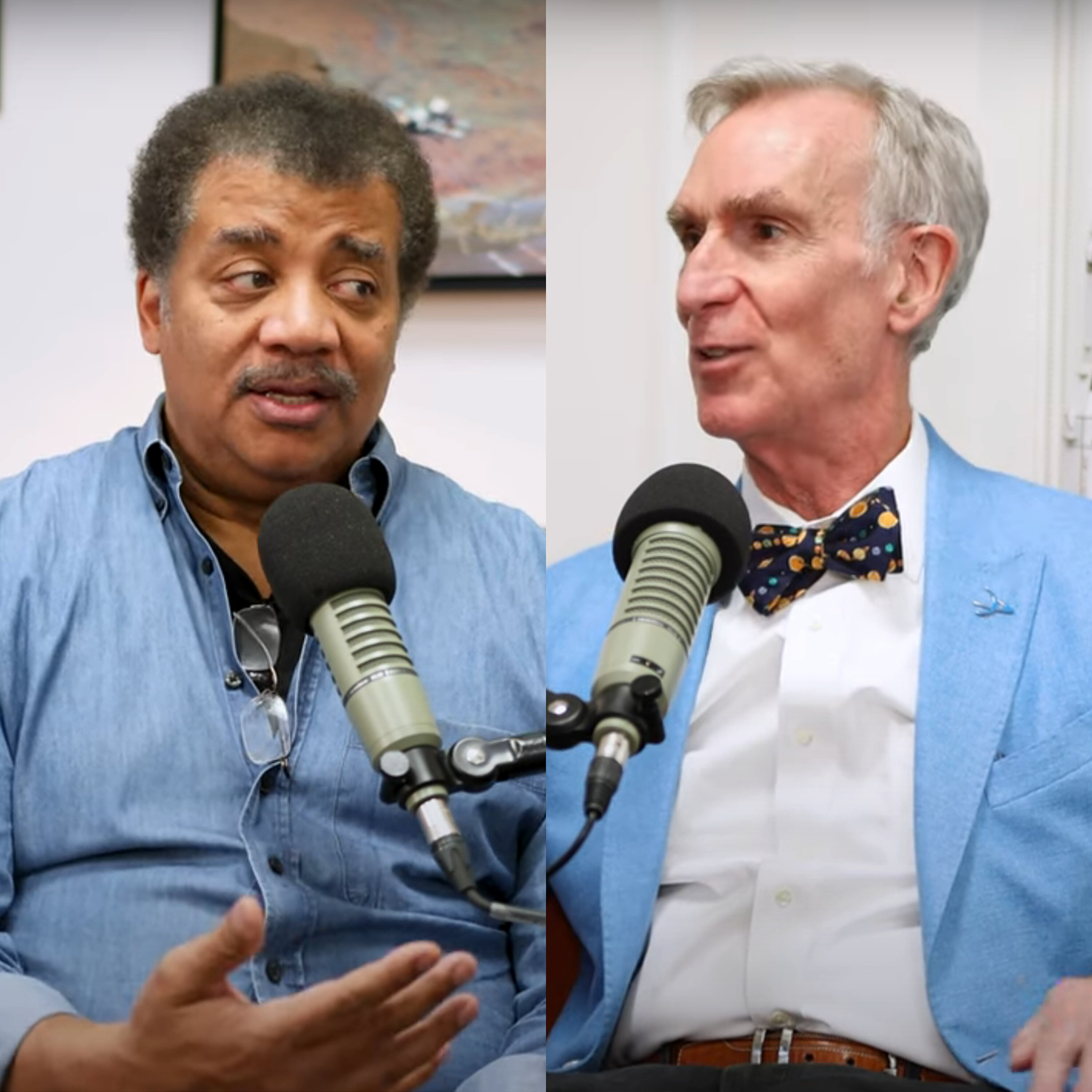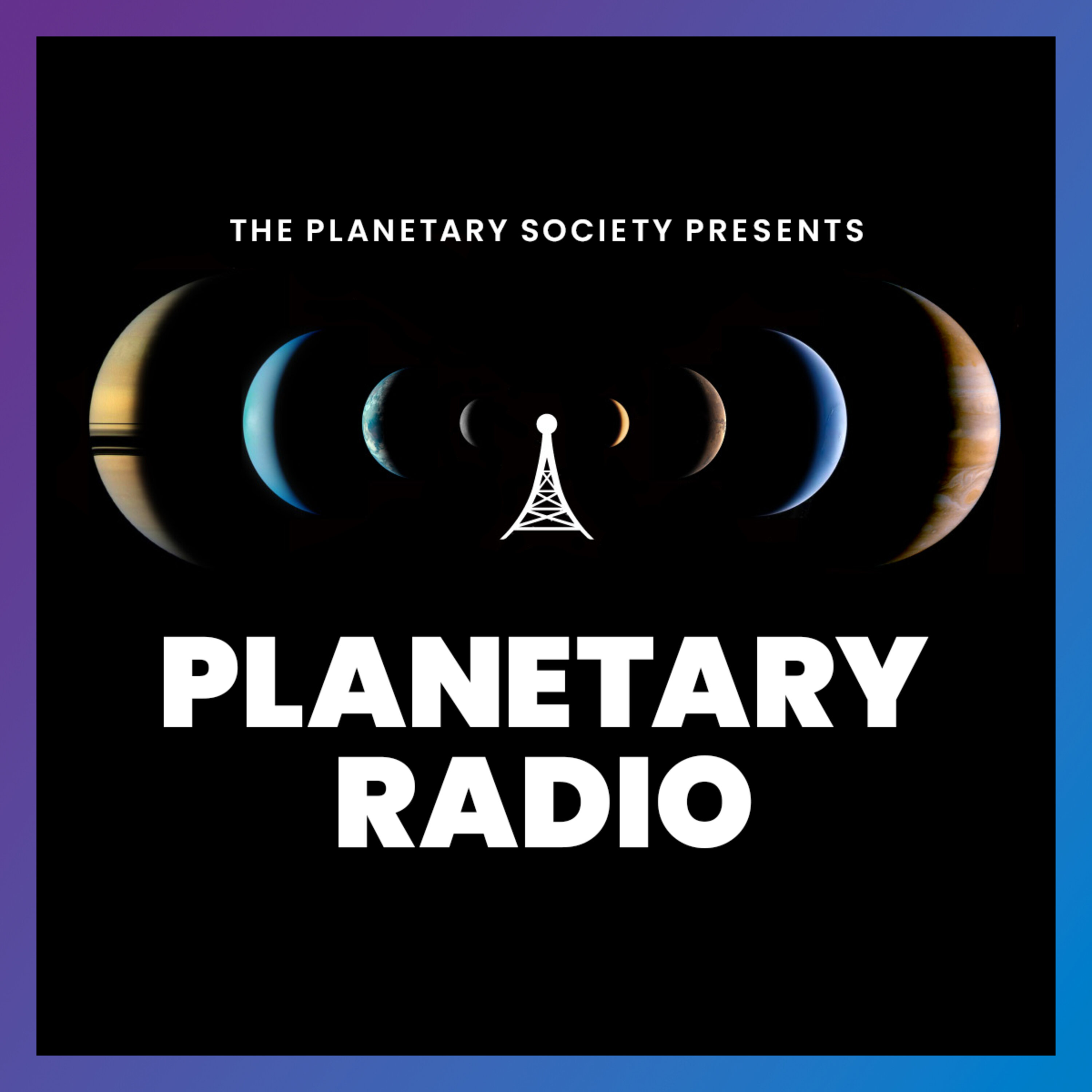
StarTalk with Bill Nye and Neil deGrasse Tyson

Planetary Radio: Space Exploration, Astronomy and Science
Deep Dive
Why was the Planetary Society founded?
The Planetary Society was founded in the late 1970s by Carl Sagan, Bruce Murray, and Lou Friedman to address the waning public interest in space exploration and to promote planetary exploration, particularly through initiatives like solar sails.
What is the mission statement of the Planetary Society?
The mission statement is: 'We are the world's largest independent space interest organization advancing space science and exploration so that citizens of Earth will be empowered to know the cosmos and our place within it.'
What recent achievement did the Planetary Society celebrate regarding the Europa Clipper mission?
The Europa Clipper mission, which aims to explore Jupiter's moon Europa, was launched after 11 years of advocacy by the Planetary Society, with 40,000 members worldwide supporting the mission through letters and emails to Congress.
Who is Jared Isaacman, and why is he significant in the context of NASA?
Jared Isaacman is a billionaire entrepreneur and space enthusiast who has been proposed as the next NASA administrator by President-elect Donald Trump. He is known for his private SpaceX missions, including the Inspiration4 and Polaris Dawn missions.
What are the Van Allen belts, and how do they affect space travel?
The Van Allen belts are zones of radiation trapped by Earth's magnetic field, consisting of high-energy particles. Space travelers must avoid prolonged exposure to these belts, as the radiation can be harmful, though brief passages are manageable with proper shielding.
What is the significance of the solar sail project in the Planetary Society's history?
The solar sail project was a significant initiative that aimed to demonstrate the feasibility of using solar wind for propulsion in space. After an initial failed attempt, the Planetary Society successfully launched LightSail 2 in 2019, proving the concept.
How does the Planetary Society engage in political advocacy for space exploration?
The Planetary Society advocates for space missions by mobilizing its members to send letters and emails to Congress, highlighting the importance of missions like the Europa Clipper. They also testify before Congress to emphasize the value of space exploration.
What is the Planetary Society's stance on the search for extraterrestrial life?
The Planetary Society has historically been involved in the search for extraterrestrial life, but this focus has shifted to the SETI Institute, which is now the primary organization conducting this research.
What is the significance of the Voyager missions in the context of planetary exploration?
The Voyager missions, launched in the 1970s, revolutionized our understanding of the outer solar system by providing detailed images and data about planets and their moons, particularly revealing that moons like Europa and Enceladus were more interesting than the planets themselves.
What role does the Planetary Society play in inspiring the public about space exploration?
The Planetary Society aims to inspire the public by connecting people with the beauty and joy of space exploration, promoting missions that explore other worlds, and encouraging citizens to participate in the adventure of discovery.
- Planetary Society's 45th anniversary
- Europa Clipper mission launch
- Importance of public engagement in space exploration
- The search for extraterrestrial life
- Development of solar sails
Shownotes Transcript
We take you to Planetary Society headquarters, where Neil deGrasse Tyson, astrophysicist and host of StarTalk, interviews Planetary Society CEO Bill Nye about the organization's 45-year history of empowering the world's citizens to advance space science and exploration. Then, we share an update on the incoming Trump administration's proposed pick for the next NASA Administrator, Jared Isaacman. Planetary Society Chief of Space Policy, Casey Dreier, and Director of Government Relations, Jack Kiraly, give us the details. We close out with Bruce Betts as he discusses the Van Allen belts and shares a new random space fact in What's Up. Discover more at: https://www.planetary.org/planetary-radio/2024-startalk)
See omnystudio.com/listener) for privacy information.